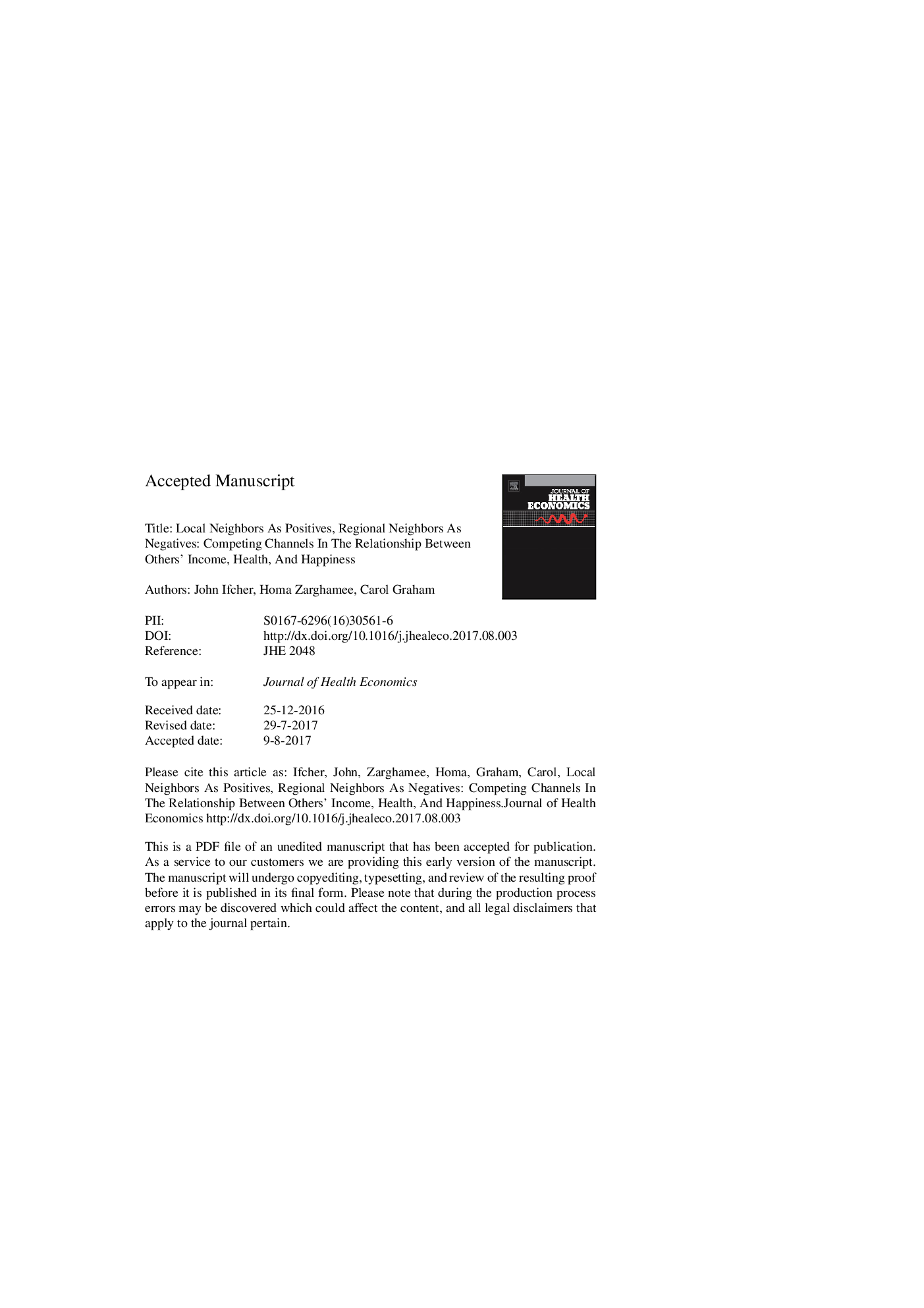| Article ID | Journal | Published Year | Pages | File Type |
|---|---|---|---|---|
| 7362976 | Journal of Health Economics | 2018 | 45 Pages |
Abstract
That well-being is decreasing in others' income is termed the “relative income hypothesis” (RIH) by scholars of subjective well-being (SWB) and has substantial empirical support. Some studies, however, present evidence of both positive and negative explanatory channels in the relationship between others' income and SWB. We develop a theoretical framework integrating four distinct channels through which neighbors' income can affect utility: public goods, cost of living, expectations of future income, and direct effects (RIH or altruism). We estimate the relationship with SWB data from the U.S. Gallup-Healthways Well-Being Index and median-income data from the American Community Survey for ZIP codes and MSAs. The relationship is proximity-dependent: positive (negative) when using ZIP-code (MSA) median income as reference income, suggesting that positive (negative) channels dominate locally (regionally) and reconciling the literature's seemingly divergent results. These findings are consistent across SWB measures and many health-related indices. Additional analyses support the public-goods and costÂof-living channels.
Keywords
Related Topics
Health Sciences
Medicine and Dentistry
Public Health and Health Policy
Authors
John Ifcher, Homa Zarghamee, Carol Graham,
